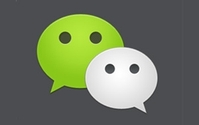
“Apps” may soon become an insufficient label for what some mobile entities are becoming. As consumer usage of downloadable programs expands very quickly, some categories are evolving
into their own platforms within platforms.
Or so argues mobile metrics company Flurry in its latest overview of the market. Across all categories, Flurry reports that app use in 2013 more than
doubled, up 115%. That means people are launching and spending time with apps at twice the rate they did a year ago.
Some categories are growing more slowly in use than others. In fact,
established content segments lag the overall trend. The news and magazine category is up only 31%, while sports/health/fitness is up 49% and even gaming is up 66%.
The real spikes that exceed
the average suggest an important transition in mobile. First, we see the utilities and productivity app category growing 149% in usage year-over-year. This suggests a migration of productivity from
desktop to mobile. People are doing more core daily tasks on smartphones and tablets that they otherwise would have been doing on laptops and desktops.
advertisement
advertisement
But it is the meteoric growth in
messaging and social apps (+203%) that underscores an important evolution in the ecosystem. As Flurry CEO Simon Khalaf writes in the blog announcing the metrics, it has been an open question whether
massively popular apps like WeChat, SnapChat and LINE -- which are driving this growth -- are discrete mobile experiences or actual platforms. Khalaf says Flurry is still waiting and seeing, but he
cites some strong indicators that apps of a certain kind are becoming platforms. Facebook's app ads have created their own sub-economy, even serviced by third parties. A marketing experiment in WeChat
launched a new phone in the app and netted 150,000 in phone sales in 10 minutes. LINE has already delivered over 100,000 game downloads by using its messaging app as a distribution platform.
The point is that not only is app use up as a category -- some apps have become genuine environments that are beginning to scale and behave much the way Facebook evolved on the desktop. Arguably,
the mobile case actually favors this extension of a single-purpose app into multipurpose platform-like status.
The relative chore of task-switching on these devices just makes it easier
when multiple functions are integrated into a single app. And yet, even on Facebook we have seen its platform potential ebbs and flow. Worse, there is the tendency for some of these companies to want
to overreach and mistake time spent for user love or loyalty. As Facebook also discovered in its failed Home initiative, being sticky on mobile is not a mandate to become an operating system.